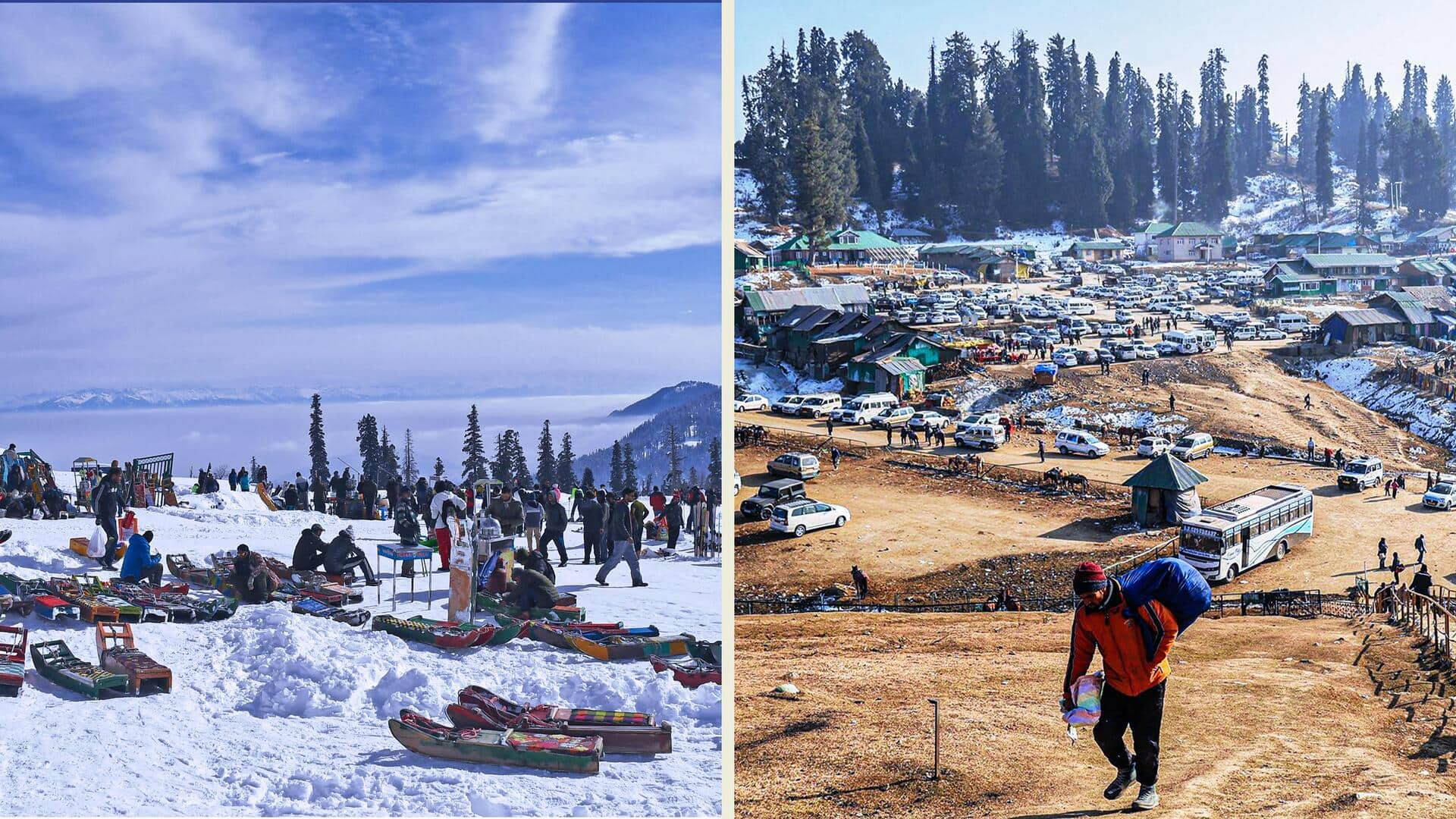
Kashmir's snowless winter raises environmental, livelihood concerns
What's the story
The Kashmir Valley is facing an unusual snowless winter, with little to no snowfall in popular tourist spots like Gulmarg, Sonmarg, and Srinagar. This situation not only affects tourism but could also lead to water shortage in Jammu and Kashmir during the summer, experts said. Director of the India Meteorological Department (IMD) at Srinagar, Mukhtar Ahmad, has warned that next summer "could turn dire as there might not be enough water to feed the snow-fed rivers."
Context
Why does this story matter?
Gulmarg -- said to be the country's most popular winter tourism and sports destination -- has been without snow for most of this season. This weather condition has led to a drop in the tourist footfall, hitting local businessess. According to government estimates, the tourist influx has dropped by at least 60% this year compared to last. Snow is also important for Kashmir's climate, winter crops and horticulture, and the supply of water in streams and rivers.
Details
Possible serious impact on glaciers, rivers
The lack of snowfall this season might have long-lasting effects on the region's glaciers and rivers, climate experts have said. According to Skymet's Vice President of Meteorology and Climate, Mahesh Palawat, "due to less or no snowfall, the glaciers won't get recharged, so the glaciers will melt at a faster pace." If this trend continues, it could eventually lead to snow-fed rivers drying up, impacting not just the Himalayan region but also nearby plains, he added.
What Next?
Khelo India Winter Games likely to be deferred
The fourth edition of the Khelo India Winter Games which were scheduled to be held from February 2 to 6, are likely to be deferred by at least two to three weeks. According to the Deccan Herald, Winter Games Association (WSA) Jammu and Kashmir President Rauf Tramboo said: "There is no other alternative, but to reschedule the games as there is a forecast of almost no snow this month."
Insights
Possible reasons for lack of snowfall
The Kashmir Valley witnessed a 79% rainfall deficit in December 2023, per IMD. This anomaly was linked to El Nino conditions, IMD scientist Soma Sen Roy told India Today. El Nino is a climate phenomenon characterized by warming sea surface temperatures in the central and eastern Pacific Ocean, which affects global weather. Another reason for the lack of snow is the absence of a strong western disturbance, which brings moisture from the Arabian Sea and causes snowfall in the mountains.
Facts
Snowfall predictions by IMD
Meanwhile, weather models suggested that a strong western disturbance may approach the western Himalayas by January 25, potentially bringing rain and snowfall to the region. IMD said: "Slight precipitation is likely on Tuesday (January 16)." "There could be some rainfall or snowfall after January 25," it said. Upcoming precipitation in Gulmarg and Uttarakhand's Auli may offer some relief.